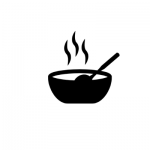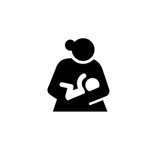
As people arrive from outside the state, the focus is on preventing COVID-19’s spread: Medical Officer in HP
25 May 2020
The ‘Inside Districts’ series launched in April was a one-of-its-kind attempt to capture the experiences of district and Block-level officials, panchayat functionaries and frontline workers, on their challenges and best practices. As India enters the fourth phase of a country-wide lockdown, we went back to some interviewees to understand how their situation has changed. Among them is a Block Medical Officer in Kangra, Himachal Pradesh. Block Medical Officers supervise Primary Health Centres and facilitate the implementation of health-related programmes and activities.
The interview was originally conducted in Hindi on 12 May 2020, and has been translated.
Q: Have you received any kind of training to handle COVID-19 associated tasks?
BMO: We get the necessary instructions through audio or video conferencing. Block officers are required to take necessary steps in the following three phases:-
Preventive: We need to ensure that social distancing is maintained.
Promotive: We need to encourage people to wear masks and gloves.
Curative: We need to ensure that the infected are treated in the hospital.
There was one COVID-19 positive person in March, and now we have identified four people who have arrived from another state, who are likely to be infected. We are awaiting their reports.
Q: What steps are you taking to prevent community transmission?
BMO: A month ago, we organised an Active Case Finding (ACF) awareness campaign, in which ASHAs, Auxiliary Nurse Midwives and other health workers went door-to-door to create awareness about the virus. These days ASHA workers are going in the community and asking people to take necessary precautions. Apart from this, the Panchayati Raj and all other field workers are also involved on awareness activities.
Q: What were the challenges during the ACF?
BMO: It was challenging to screen people because families were hiding information about people who had arrived from outside.
We were hesitant to send the team on the field because of the lack of availability of masks and gloves. Some families also started misbehaving with the ASHA workers, which was really disappointing.
Q: Have you observed shortages?
BMO: Currently, we have enough availability of masks, gloves and sanitisers, and we have given these to our field staff as well. We faced a shortage in the month of April during the ACF campaign.
Q: How has your worked changed due to the pandemic?
BMO: While earlier there were 400-500 Outpatient Department queries per day this has dropped to 100-150 during the lockdown. This could be because people do not have access to public transport. Now, the focus is on preventing COVID-19 particularly because people are arriving from outside the state.
Download and share illustration: The Forest Voyage





